
|
Tweet |

ABD Milli Güvenlik Stratejisi (US National Security Strategy 2017) 18 Aralıkta Başkan Donald J. Trump imzası ile yayınlandı.
Yeniden büyük güç olma arzusunun ifadesi olan belge ABD'nin Çin ve Rusyayı direk rakip gördüğünü açıkladığı ilk belge. Bu belge artık ABD hegemonyasının sonun un geldiğini gösteriyor.
Siteniz aynahaber.org ABD Milli Güvenlik Stratejisi 2017'ye ulaşarak sizin için tamamını yayınlıyor.
NATİONAL SECURİTY
STRATEGY
of the United States of America
DECEMBER 2017
My fellow Americans:
The American people elected me to make America great again. I promised that my Administration would put the safety, interests, and well-being of our citizens first. I pledged that we would revitalize the American economy, rebuild our military, defend our borders, protect our sovereignty, and advance our values.
During my first year in office, you have witnessed my America First foreign policy in action. We are prioritizing the interests of our citizens and protecting our sovereign rights as a nation. America is leading again on the world stage. We are not hiding from the challenges we face. We are confronting them head-on and pursuing opportunities to promote the security and prosperity of all Americans.
The United States faces an extraordinarily dangerous world, filled with a wide range of threats that have intensified in recent years. When I came into office, rogue regimes were developing nuclear weapons and missiles to threaten the entire planet. Radical Islamist terror groups were flourishing. Terrorists had taken control of vast swaths of the Middle East. Rival powers were aggressively undermining American interests around the globe. At home, porous borders and unenforced immigration laws had created a host of vulnerabilities. Criminal cartels were bringing drugs and danger into our communities. Unfair trade practices had weakened our economy and exported our jobs overseas. Unfair burden-sharing with our allies and inadequate investment in our own defense had invited danger from those who wish us harm. Too many Americans had lost trust in our government, faith in our future, and confidence in our values.
Nearly one year later, although serious challenges remain, we are charting a new and very different course.
We are rallying the world against the rogue regime in North Korea and confronting the danger posed by the dictatorship in Iran, which those determined to pursue a flawed nuclear deal had neglected. We have renewed our friendships in the Middle East and partnered with regional leaders to help drive out terrorists and extremists, cut off their financing, and discredit their wicked ideology. We crushed Islamic State of Iraq and Syria (ISIS) terrorists on the battlefields of Syria and Iraq, and will continue pursuing them until they are destroyed. America’s allies are now contributing more to our common defense, strengthening even our strongest alliances. We have also continued to make clear that the United States will no longer tolerate economic aggression or unfair trading practices.
At home, we have restored confidence in America’s purpose. We have recommitted ourselves to our founding principles and to the values that have made our families, communities, and society so successful. Jobs are coming back and our economy is growing. We are making historic investments in the United States military. We are enforcing our borders, building trade relationships based on fairness and reciprocity, and defending America’s sovereignty without apology.
The whole world is lifted by America’s renewal and the reemergence of American leadership. After one year, the world knows that America is prosperous, America is secure, and America is strong. We will bring about the better future we seek for our people and the world, by confronting the challenges and dangers posed by those who seek to destabilize the world and threaten America’s people and interests.
My Administration’s National Security Strategy lays out a strategic vision for protecting the American people and preserving our way of life, promoting our prosperity, preserving peace through strength, and advancing American influence in the world. We will pursue this beautiful vision—a world of strong, sovereign, and independent nations, each with its own cultures and dreams, thriving side-by-side in prosperity, freedom, and peace—throughout the upcoming year.
In pursuit of that future, we will look at the world with clear eyes and fresh thinking. We will promote a balance of power that favors the United States, our allies, and our partners. We will never lose sight of our values and their capacity to inspire, uplift, and renew.
Most of all, we will serve the American people and uphold their right to a government that prioritizes their security, their prosperity, and their interests. This National Security Strategy puts America First.
President Donald J. Trump
The White House
December 2017
INTRODUCTİON
An America that is safe, prosperous, and free at home is an America with the strength, confi dence, and will to lead abroad. It is an America that can preserve peace, uphold liberty, and create enduring advantages for the American people. Putting America first is the du of our government and the foundation for U.S. leadership in the world.
A strong America is in the vital interests of not only the American people, but also those around the world who want to partner with the United States in pursuit of shared interests, values, and aspirations.
This is National Security Strategy puts America first.
An America First National Security Strategy is based on American principles, a clear-eyed assessment of U.S. interests, and a determination to tackle the challenges that we face. It is a strategy of principled realism that is guided by outcomes, not ideology. It is based upon the view that peace, security, and prosperity depend on strong, sovereign nations that respect their citizens at home and cooperate to advance peace abroad. And it is grounded in the realization that American principles are a lasting force for good in the world.
“We the People” is America’s source of strength.
The United States was born of a desire for life, liberty, and the pursuit of happiness—and a conviction that unaccountable political power is tyranny. For these reasons, our Founders crafted and ratified the Constitution, establishing the republican form of government we enjoy today. The Constitution grants our national government not only specified powers necessary to protect our God-given rights and liberties but also safeguards them by limiting the government’s size and scope, separating Federal powers, and protecting the rights of individuals through the rule of law. All political power is ultimately delegated from, and accountable to, the people.
We protect American sovereignty by defending these institutions, traditions, and principles that have allowed us to live in freedom, to build the nation that we love. And we prize our national heritage, for the rare and fragile institutions of republican government can only endure if they are sustained by a culture that cherishes those institutions.
Liberty and independence have given us the flourishing society Americans enjoy today—a vibrant and confident Nation, welcoming of disagreement and differences, but united by the bonds of history, culture, beliefs, and principles that define who we are.
We are proud of our roots and honor the wisdom of the past. We are committed to protecting the rights and digni‑ of every citizen. And we are a nation of laws, because the rule of law is the shield that protects the individual from government corruption and abuse of power, allows families to live without fear, and permits markets to thrive.
Our founding principles have made the United States of America among the greatest forces for good in history. But we are also aware that we must protect and build upon our accomplishments, always conscious of the fact that the interests of the American people constitute our true North Star.
America’s achievements and standing in the world were neither inevitable nor accidental. On many occasions, Americans have had to compete with adversarial forces to preserve and advance our security, prosperity, and the principles we hold dear. At home, we fought the Civil War to end slavery and preserve our Union in the long struggle to extend equal rights for all Americans. In the course of the bloodiest century in human history, millions of Americans fought, and hundreds of thousands lost their lives, to defend liber‑ in two World Wars and the Cold War. America, with our allies and partners, defeated fascism, imperialism, and Soviet communism and eliminated any doubts about the power and durability of republican democracy when it is sustained by a free, proud, and unified people.
The United States consolidated its military victories with political and economic triumphs built on market economies and fair trade, democratic principles, and shared security partnerships. American political, business, and military leaders worked together with their counterparts in Europe and Asia to shape the post-war order through the United Nations, the Marshall Plan, the North Atlantic Treaty Organization (NATO), and other institutions designed to advance our shared interests of security, freedom, and peace. We recognize the invaluable advantages that our strong relationships with allies and partners deliver.
Following the remarkable victory of free nations in the Cold War, America emerged as the lone superpower with enormous advantages and momentum in the world. Success, however, bred complacency. A belief emerged, among many, that American power would be unchallenged and self– sustaining. The United States began to drift. We experienced a crisis of confidence and surrendered our advantages in key areas. As we took our political, economic, and military advantages for granted, other actors steadily implemented their long-term plans to challenge America and to advance agendas opposed to the United States, our allies, and our partners.
We stood by while countries exploited the international institutions we helped to build. They subsidized their industries, forced technology transfers, and distorted markets. These and other actions challenged America’s economic security. At home, excessive regulations and high taxes stifled growth and weakened free enterprise—history’s greatest antidote to poverty. Each time government encroached on the productive activities of private commerce, it threatened not only our prosperity but also the spirit of creation and innovation that has been key to our national greatness.
A Competitive World
The United States will respond to the growing political, economic, and military competitions we face around the world.
China and Russia challenge American power, influence, and interests, attempting to erode American security and prosperity. They are determined to make economies less free and less fair, to grow their militaries, and to control information and data to repress their societies and expand their influence. At the same time, the dictatorships of the Democratic People’s Republic of Korea and the Islamic Republic of Iran are determined to destabilize regions, threaten Americans and our allies, and brutalize their own people. Transnational threat groups, from jihadist terrorists to transnational criminal organizations, are actively trying to harm Americans. While these challenges differ in nature and magnitude, they are fundamentally contests between those who value human dignity and freedom and those who oppress individuals and enforce uniformity.
These competitions require the United States to rethink the policies of the past two decades—policies based on the assumption that engagement with rivals and their inclusion in international institutions and global commerce would turn them into benign actors and trustworthy partners. For the most part, this premise turned out to be false.
Rival actors use propaganda and other means to try to discredit democracy. They advance anti-Western views and spread false information to create divisions among ourselves, our allies, and our partners. In addition, jihadist terrorists such as ISIS and al-Qa’ida continue to spread a barbaric ideology that calls for the violent destruction of governments and innocents they consider to be apostates. ese jihadist terrorists attempt to force those under their influence to submit to Sharia law.
America’s military remains the strongest in the world. However, U.S. advantages are shrinking as rival states modernize and build up their conventional and nuclear forces. Many actors can now field a broad arsenal of advanced missiles, including variants that can reach the American homeland. Access to technology empowers and emboldens otherwise weak states. North Korea—a country that starves its own people—has spent hundreds of millions of dollars on nuclear, chemical, and biological weapons that could threaten our homeland. In addition, many actors have become skilled at operating below the threshold of military conflict—challenging the United States, our allies, and our partners with hostile actions cloaked in deniability. Our task is to ensure that American military superiority endures, and in combination with other elements of national power, is ready to protect Americans against sophisticated challenges to national security.
The contest over information accelerates these political, economic, and military competitions. Data, like energy, will shape U.S. economic prosperity and our future strategic position in the world. The ability to harness the power of data is fundamental to the continuing growth of America’s economy, prevailing against hostile ideologies, and building and deploying the most effective military in the world.
We learned the difficult lesson that when America does not lead, malign actors fill the void to the disadvantage of the United States. When America does lead, however, from a position of strength and confi dence and in accordance with our interests and values, all benefit.
Competition does not always mean hostility, nor does it inevitably lead to conflict—although none should doubt our commitment to defend our interests. An America that successfully competes is the best way to prevent confl ict. Just as American weakness invites challenge, American strength and confidence deters war and promotes peace.
An America First National Security Strategy
The competitions and rivalries facing the United States are not passing trends or momentary problems. They are intertwined, long-term challenges that demand our sustained national attention and commitment.
America possesses unmatched political, economic, military, and technological advantages. But to maintain these advantages, build upon our strengths, and unleash the talents of the American people, we must protect four vital national interests in this competitive world.
First, our fundamental responsibility is to protect the American people, the homeland, and the American way of life. We will strengthen control of our borders and reform our immigration system. We will protect our critical infrastructure and go after malicious cyber actors. A layered missile defense system will defend our homeland against missile attacks. And we will pursue threats to their source, so that jihadist terrorists are stopped before they ever reach our borders.
Second, we will promote American prosperity. We will rejuvenate the American economy for the benefit of American workers and companies. We will insist upon fair and reciprocal economic relationships to address trade imbalances. The United States must preserve our lead in research and technology and protect our economy from competitors who unfairly acquire our intellectual property. And we will embrace America’s energy dominance because unleashing abundant energy resources stimulates our economy.
Third, we will preserve peace through strength by rebuilding our military so that it remains preeminent, deters our adversaries, and if necessary, is able to fight and win. We will compete with all tools of national power to ensure that regions of the world are not dominated by one power. We will strengthen America’s capabilities—including in space and cyberspace—and revitalize others that have been neglected. Allies and partners magnify our power. We expect them to shoulder a fair share of the burden of responsibility to protect against common threats.
Fourth, we will advance American influence because a world that supports American interests and reflects our values makes America more secure and prosperous. We will compete and lead in multilateral organizations so that American interests and principles are protected. America’s commitment to liberty, democracy, and the rule of law serves as an inspiration for those living under ‑ ranny. We can play a catalytic role in promoting private-sector-led economic growth, helping aspiring partners become future trading and security partners. And we will remain a generous nation, even as we expect others to share responsibility.
Strengthening our sovereignty—the first duty of a government is to serve the interests of its own people—is a necessary condition for protecting these four national interests. And as we strengthen our sovereignty we will renew confidence in ourselves as a nation. We are proud of our history, optimistic about America’s future, and confident of the positive example the United States offers to the world. We are also realistic and understand that the American way of life cannot be imposed upon others, nor is it the inevitable culmination of progress. Together with our allies, partners, and aspiring partners, the United States will pursue cooperation with reciprocity. Cooperation means sharing responsibilities and burdens. In trade, fair and reciprocal relationships benefit all with equal levels of market access and opportunities for economic growth. An America First National Security Strategy appreciates that America will catalyze conditions to unleash economic success for America and the world.
In the United States, free men and women have created the most just and prosperous nation in history. Our generation of Americans is now charged with preserving and defending that precious inheritance. This National Security Strategy shows the way.
(Bu aradaki 2 sayfa -ABD de yayınlanan orjinal metinde 5. ve 6. sayfalar- bulunmamaktadır. ABD'nin bu sayfaları yayınlamayı uygun görmediği düşünülmektedir.)
PILLAR I
PROTECT THE AMERİCAN PEOPLE,
THE HOMELAND, AND
THE AMERİCAN WAY OF LİFE
“We will defend our country, protect our communities, and put the safe of the American people first.”
PRESIDENT DONALD J. TRUMP | JULY 2017
This National Security Strategy begins with the determination to protect the American people, the American way of life, and American interests. Americans have long recognized the benefits of an interconnected world, where information and commerce flow freely. Engaging with the world, however, does not mean the United States should abandon its rights and duties as a sovereign state or compromise its security. Openness also imposes costs, since adversaries exploit our free and democratic system to harm the United States.
North Korea seeks the capability to kill millions of Americans with nuclear weapons. Iran supports terrorist groups and openly calls for our destruction. Jihadist terrorist organizations such as ISIS and al-Qa’ida are determined to attack the United States and radicalize Americans with their hateful ideology. Non-state actors undermine social order through drug and human trafficking networks, which they use to commit violent crimes and kill thousands of American each year.
Adversaries target sources of American strength, including our democratic system and our economy. They steal and exploit our intellectual property and personal data, interfere in our political processes, target our aviation and maritime sectors, and hold our critical infrastructure at risk. All of these actions threaten the foundations of the American way of life. Reestablishing lawful control of our borders is a first step toward protecting the American homeland and strengthening American sovereignty.
We must prevent nuclear, chemical, radiological, and biological attacks, block terrorists from reaching our homeland, reduce drug and human trafficking, and protect our critical infrastructure. We must also deter, disrupt, and defeat potential threats before they reach the United States. We will target jihadist terrorists and transnational criminal organizations at their source and dismantle their networks of support.
We must also take steps to respond quickly to meet the needs of the American people in the event of natural disaster or attack on our homeland. We must build a culture of preparedness and resilience across our governmental functions, critical infrastructure, and economic and political systems.
Secure U.S. Borders and Territory
State and non-state actors place the safety of the American people and the Nation’s economic vitality at risk by exploiting vulnerabilities across the land, air, maritime, space, and cyberspace domains. Adversaries constantly evolve their methods to threaten the United States and our citizens. We must be agile and adaptable.
Defend Against Weapons of Mass Destruction (WMD)
The danger from hostile state and non-state actors who are trying to acquire nuclear, chemical, radiological, and biological weapons is increasing. The Syrian regime’s use of chemical weapons against its own citizens undermines international norms against these heinous weapons, which may encourage more actors to pursue and use them. ISIS has used chemical weapons in Iraq and Syria. Terrorist groups continue to pursue WMD-related materials. We would face grave danger if terrorists obtained inadequately secured nuclear, radiological, or biological material.
As missiles grow in numbers, types, and effectiveness, to include those with greater ranges, they are the most likely means for states like North Korea to use a nuclear weapon against the United States. North Korea is also pursuing chemical and biological weapons which could also be delivered by missile. China and Russia are developing advanced weapons and capabilities that could threaten our critical infrastructure and our command and control architecture.
Priori Actions
ENHANCE MISSILE DEFENSE: The United States is deploying a layered missile defense system focused on North Korea and Iran to defend our homeland against missile attacks. This system will include the ability to defeat missile threats prior to launch. Enhanced missile defense is not intended to undermine strategic stability or disrupt longstanding strategic relationships with Russia or China.
DETECT AND DISRUPT WEAPONS OF MASS DESTRUCTION: At our borders and within our territory, we will bolster efforts to detect nuclear, chemical, radiological, and biological agents and keep them from being used against us. We will also better integrate intelligence, law enforcement, and emergency management operations to ensure that frontline defenders have the right information and capabilities to respond to WMD threats from state and non-state actors.
ENHANCE COUNTERPROLIFERATION MEASURES: Building on decades of initiatives, we will augment measures to secure , eliminate, and prevent t he spread of WMD and related materials, their delivery systems, technologies, and knowledge to reduce the chance that they might fall into the hands of hostile actors. We will hold state and nonstate actors accountable for the use of WMD.
TARGET WMD TERRORISTS: We will direct counterterrorism operations against terrorist WMD specialists, fi nanciers, administrators, and facilitators. We will work with allies and partners to detect and disrupt plots.
Combat Biothreats and Pandemics
Biological incidents have the potential to cause catastrophic loss of life. Biological threats to the U.S. homeland—whether as the result of deliberate a ack, accident, or a natural outbreak—are growing and require actions to address them at their source.
Naturally emerging outbreaks of viruses such as Ebola and SARS, as well as the deliberate 2001 anthrax attacks in the United States, demonstrated the impact of biological threats on national security by taking lives, generating economic losses, and contributing to a loss of confidence in government institutions. Advancements in life sciences that benefit our health, economy, and socie‑ also open up new avenues to actors who want to cause harm. Dedicated state actors are likely to develop more advanced bioweapons, and these capabilities may become available to malicious non-state actors as well.
Priori Actions
DETECT AND CONTAIN BIOTHREATS AT THEIR SOURCE: We will work with other countries to detect and mitigate outbreaks early to prevent the spread of disease. We will encourage other countries to invest in basic health care systems and to strengthen global health security across the intersection of human and animal health to prevent infectious disease outbreaks. And we will work with partners to ensure that laboratories that handle dangerous pathogens have in place safety and security measures.
SUPPORT BIOMEDICAL INNOVATION: We will protect and support advancements in biomedical innovation by strengthening the intellectual property system that is the foundation of the biomedical industry.
IMPROVE EMERGENCY RESPONSE: At home, we will strengthen our emergency response and unified coordination systems to rapidly characterize outbreaks, implement public health containment measures to limit the spread of disease, and provide surge medical care—including life-saving treatments.
Strengthen Border Control and Immigration Policy
Strengthening control over our borders and immigration system is central to national security, economic prosperity, and the rule of law. Terrorists, drug traffickers, and criminal cartels exploit porous borders and threaten U.S. security and public safety. These actors adapt quickly to outpace our defenses.
The United States affirms our sovereign right to determine who should enter our country and under what circumstances. The United States understands the contributions immigrants have made to our Nation throughout its history. Illegal immigration, however, burdens the economy, hurts American workers, presents public safety risks, and enriches smugglers and other criminals.
The United States recognizes that decisions about who to legally admit for residency, citizenship, or otherwise are among the most important a country has to make. The United States will continue to welcome lawful immigrants who do not pose a security threat and whose entry is consistent with the national interest, while at the same time enhancing the screening and vetting of travelers, closing dangerous loopholes, revising outdated laws, and eliminating easily exploited vulnerabilities. We will also reform our current immigration system, which, contrary to our national interest and national security, allows for randomized entry and extended-family chain migration. Residency and citizenship determinations should be based on individuals’ merits and their ability to positively contribute to U.S. society, rather than chance or extended family connections.
Priori Actions
ENHANCE BORDER SECURITY: We will secure our borders through the construction of a border wall, the use of multilayered defenses and advanced technology, the employment of additional personnel, and other measures. The U.S. Government will work with foreign partners to deter, detect, and disrupt suspicious individuals well before they enter the United States.
ENHANCE VETTING: The U.S. Government will enhance vetting of prospective immigrants, refugees, and other foreign visitors to identify individuals who might pose a risk to national security or public safety. We will set higher security standards to ensure that we keep dangerous people out of the United States and enhance our information collection and analysis to identify those who may already be within our borders.
ENFORCE IMMIGRATION LAWS: We will enforce immigration laws, both at the border and in the interior, to provide an e ective deterrent to illegal immigration. e apprehension and swift removal of illegal aliens at the border is critical to an effective border security strategy. We must also increase efforts to identify and counter fraud in the immigration process, which undermines the integrity of our immigration system, exploits vulnerable individuals, and creates national security risks.
BOLSTER TRANSPORTATION SECURITY: We will improve information sharing across our government and with foreign partners to enhance the security of the pathways through which people and goods enter the country. We will invest in technology to counter emerging threats to our aviation, surface, and maritime transportation sectors. We will also work with international and industry partners to raise security standards.
Pursue Treats to Their Source
There is no perfect defense against the range of threats facing our homeland. That is why America must, alongside allies and partners, stay on the offensive against those violent non-state groups that target the United States and our allies.
The primary transnational threats Americans face are from jihadist terrorists and transnational criminal organizations. Although their objectives differ, these actors pose some common challenges. First, they exploit our open society. Second, they often operate in loose confederations and adapt rapidly. ird, they rely on encrypted communication and the dark web to evade detection as they plot, recruit, fi nance, and execute their operations. Fourth, they thrive under conditions of state weakness and prey on the vulnerable as they accelerate the breakdown of rules to create havens from which to plan and launch a acks on the United States, our allies, and our partners. Fifth, some are sheltered and supported by states and do their bidding.
Defeat Jihadist Terrorists
Jihadist terrorist organizations present the most dangerous terrorist threat to the Nation. America, alongside our allies and partners, is fighting a long war against these fanatics who advance a totalitarian vision for a global Islamist caliphate that justifies murder and slavery, promotes repression, and seeks to undermine the American way of life. Jihadist terrorists use virtual and physical networks around the world to radicalize isolated individuals, exploit vulnerable populations, and inspire and direct plots.
Even after the territorial defeat of ISIS and al-Qa’ida in Syria and Iraq, the threat from jihadist terrorists will persist. They have used battlefields as test beds of terror and have exported tools and tactics to their followers. Many of these jihadist terrorists are likely to return to their home countries, from which they can continue to plot and launch attacks on the United States and our allies.
The United States also works with allies and partners to deter and disrupt other foreign terrorist groups that threaten the homeland—including Iranian-backed groups such as Lebanese Hizballah.
Priori Actions
DISRUPT TERROR PLOTS: We will enhance intelligence sharing domestically and with foreign partners. We will give our frontline defenders— including homeland security, law enforcement, and intelligence professionals—the tools, authorities, and resources to stop terrorist acts before they take place.
TAKE DIRECT ACTION: The U.S. military and other operating agencies will take direct action against terrorist networks and pursue terrorists who threaten the homeland and U.S. citizens regardless of where they are. The campaigns against ISIS and al-Qa’ida and their affiliates demonstrate that the United States will enable partners and sustain direct action campaigns to destroy terrorists and their sources of support, making it harder for them to plot against us.
ELIMINATE TERRORIST SAFE HAVENS: Time and territory allow jihadist terrorists to plot, so we will act against sanctuaries and prevent their reemergence, before they can threaten the U.S. homeland. We will go after their digital networks and work with private industry to confront the challenge of terrorists and criminals “going dark” and using secure platforms to evade detection.
SEVER SOURCES OF STRENGTH: We will disrupt the financial, materiel, and personnel supply chains of terrorist organizations. We will sever their fi nancing and protect the U.S. and international financial systems from abuse. We will degrade their ability to message and attract potential recruits. This includes combating the evil ideology of jihadists by exposing its falsehoods, promoting counter-narratives, and amplifying credible voices.
SHARE RESPONSIBILITY: Our allies and partners, who are also targets of terrorism, will continue to share responsibility in fighting these barbaric groups. We will help our partners develop and responsibly employ the capacity to degrade and maintain persistent pressure against terrorists and will encourage partners to work independently of U.S. assistance.
COMBAT RADICALIZATION AND RECRUITMENT IN COMMUNITIES: The United States rejects bigotry and oppression and seeks a future built on our values as one American people. We will deny violent ideologies the space to take root by improving trust among law enforcement, the private sector, and American citizens. U.S. intelligence and homeland security experts will work with law enforcement and civic leaders on terrorism prevention and provide accurate and actionable information about radicalization in their communities.
Dismantle Transnational Criminal Organizations
The United States must devote greater resources to dismantle transnational criminal organizations (TCOs) and their subsidiary networks. Some have established global supply chains that are comparable to Fortune 500 corporations. Every day they deliver drugs to American communities, fuel gang violence, and engage in cybercrime. The illicit opioid epidemic, fed by drug cartels as well as Chinese fentanyl traffickers, kills tens of thousands of Americans each year. ese organizations weaken our allies and partners too, by corrupting and undermining democratic institutions. TCOs are motivated by profit, power, and political influence. They exploit weak governance and enable other national security threats, including terrorist organizations. In addition, some state adversaries use TCOs as instruments of national power, offering them territorial sanctuary where they are free to conduct unattributable cyber intrusions, sabotage, theft, and political subversion.
Priori Actions
IMPROVE STRATEGIC PLANNING AND INTELLIGENCE: We will establish national-level strategic intelligence and planning capabilities to improve the ability of agencies to work together to combat TCOs at home and abroad.
DEFEND COMMUNITIES: We will deny TCOs the ability to harm Americans. We will support public health efforts to halt the growth of illicit drug use in the United States, expand national and community-based prevention efforts, increase access to evidenced-based treatment for addiction, improve prescription drug monitoring, and provide training on substance use disorders for medical personnel.
DEFEND IN DEPTH: U.S. agencies and foreign partners will target TCO leaders and their support infrastructure. We will assist countries, particularly in the Western Hemisphere, to break the power of these organizations and networks.
COUNTER CYBER CRIMINALS: We will use sophisticated investigative tools to disrupt the ability of criminals to use online marketplaces, cryptocurrencies, and other tools for illicit activities. The United States will hold countries accountable for harboring these criminals.
Keep America Safe in the Cyber Era
America’s response to the challenges and opportunities of the cyber era will determine our future prosperi‑ and security . For most of our history, the United States has been able to protect the homeland by controlling its land, air, space, and maritime domains. Today, cyberspace offers state and non-state actors the ability to wage campaigns against American political, economic, and security interests without ever physically crossing our borders. Cyberattacks offer adversaries lowcost and deniable opportunities to seriously damage or disrupt critical infrastructure, cripple American businesses, weaken our Federal net works , and attack the tools and devices that Americans use every day to communicate and conduct business.
Critical infrastructure keeps our food fresh, our houses warm, our trade flowing, and our citizens productive and safe. The vulnerability of U.S. critical infrastructure to cyber, physical, and electromagnetic attacks means that adversaries could disrupt military command and control, banking and fi nancial operations, the electrical grid, and means of communication.
Federal networks also face threats. These networks allow government agencies to carry out vital functions and provide services to the American people. The government must do a better job of protecting data to safeguard information and the privacy of the American people. Our Federal networks must be modernized and updated.
In addition, the daily lives of most Americans rely on computer-driven and interconnected technologies. As our reliance on computers and connectivity increases, we become increasingly vulnerable to cyberattacks. Businesses and individuals must be able to operate securely in cyberspace.
Security was not a major consideration when the Internet was designed and launched. As it evolves, the government and private sector must design systems that incorporate prevention, protection, and resiliency from the start, not as an afterthought. We must do so in a way that respects free markets, private competition, and the limited but important role of government in enforcing the rule of law. As we build the next generation of digital infrastructure, we have an opportuni‑ to put our experience into practice.
The Internet is an American invention, and it should reflect our values as it continues to transform the future for all nations and all generations. A strong, defensible cyber infrastructure fosters economic growth, protects our liberties, and advances our national security.
Priori Actions
IDENTIFY AND PRIORITIZE RISK: To improve the security and resilience of our critical infrastructure, we will assess risk across six key areas: national security, energy and power, banking and finance, health and safety, communications, and transportation. We will assess where cyberattacks could have catastrophic or cascading consequences and prioritize our protective efforts, capabilities, and defenses accordingly.
BUILD DEFENSIBLE GOVERNMENT NETWORKS: We will use the latest commercial capabilities, shared services, and best practices to modernize our Federal information technology. We will improve our abili‑ to provide uninterrupted and secure communications and services under all conditions.
DETER AND DISRUPT MALICIOUS CYBER ACTORS: The Federal Government will ensure that those charged with securing critical infrastructure have the necessary authorities, information, and capabilities to prevent attacks before they affect or hold at risk U.S. critical infrastructure. The United States will impose swift and costly consequences on foreign governments, criminals, and other actors who undertake significant malicious cyber activities. We will work with allies and friends to expand our awareness of malicious activities. A stronger and more resilient critical infrastructure will strengthen deterrence by creating doubt in our adversaries that they can achieve their objectives.
IMPROVE INFORMATION SHARING AND SENSING: The U.S. Government will work with our critical infrastructure partners to assess their informational needs and to reduce the barriers to information sharing, such as speed and classification levels. We will also invest in capabilities that improve the ability of the United States to attribute cyberattacks. In accordance with the protection of civil liberties and privacy, the U.S. Government will expand collaboration with the private sector so that we can better detect and attribute attacks.
DEPLOY LAYERED DEFENSES: Since threats transit globally, passing through communications backbones without challenge, the U.S. Government will work with the private sector to remediate known bad activities at the network level to improve the security of all customers. Malicious activity must be defeated within a network and not be passed on to its destination whenever possible.
Promote American Resilience
Despite our best efforts, our government cannot prevent all dangers to the American people. We can, however, help Americans remain resilient in the face of adversity. Resilience includes the ability to withstand and recover rapidly from deliberate attacks, accidents, natural disasters, as well as unconventional stresses, shocks, and threats to our economy and democratic system. In the event of a disaster, Federal, state, and local agencies must perform essential functions and have plans in place to ensure the continuation of our constitutiona l form of government.
Reducing risk and building more resilient communities are the best ways to protect people, property, and taxpayer dollars from loss and disruption. Through risk-informed investments, we will build resilient communities and infrastructure to protect and benefit future generations.
Should tragedy strike, the U.S. Government will help communities recover and rebuild. Citizens must be confi dent in our government, but also recognize that response and recovery begins with individuals and local communities. In difficult times, the true character of the American people emerges: their strength, their love, and their resolve. Our fi rst responders selfl essly run toward danger, and volunteers rally to the aid of neighbors when disaster strikes.
A democracy is only as resilient as its people. An informed and engaged citizenry is the fundamental requirement for a free and resilient nation. For generations, our society has protected free press, free speech, and free thought. Today, actors such as Russia are using information tools in an attempt to undermine the legitimacy of democracies. Adversaries target media, political processes, fi nancial networks, and personal data. The American public and private sectors must recognize this and work together to defend our way of life. No external threat can be allowed to shake our shared commitment to our values, undermine our system of government, or divide our Nation.
Priori Actions
IMPROVE RISK MANAGEMENT: The United States will improve its ability to assess the threats and hazards that pose the greatest risks to Americans and will prioritize resources based on the highest risks.
BUILD A CULTURE OF PREPAREDNESS: This Administration will take steps to build a culture of preparedness, informing and empowering communities and individuals to obtain the skills and take the preparatory actions necessary to become more resilient against the threats and hazards that Americans face.
IMPROVE PLANNING: State and local governments must conduct realistic exercises that test existing plans to make sure that they are sound and can be executed. Agencies from all levels of government must coordinate be er and apply lessons learned from exercises to pinpoint the areas and capabilities that require improvement.
INCENTIVIZE INFORMATION SHARING: To improve the coordination among the private sector and all levels of government that is needed to improve resilience, we must make a stronger commitment to protecting sensitive information so that all partners actively identify and share vulnerabilities and work collaboratively to reduce them.
(Bu aradaki 2 sayfa -ABD de yayınlanan orjinal metinde -15 ve 16. sayfalar- bulunmamaktadır. ABD'nin bu sayfaları yayınlamayı uygun görmediği düşünülmektedir.)
kopyalanan sistem 2. bölümün belli bir yerinden itibaren siteye kopyalayıp yapıştırmaya izin vermediği için 2. bölümden itibaren strateji belgesinin sayfa fotoğrafları kullanılacaktır.
(Bu aradaki 1 sayfa -ABD de yayınlanan orjinal metinde 24.sayfa- bulunmamaktadır. ABD'nin bu sayfaları yayınlamayı uygun görmediği düşünülmektedir.)
(Bu aradaki 1 sayfa -ABD de yayınlanan orjinal metinde 36.sayfa- bulunmamaktadır. ABD'nin bu sayfayı yayınlamayı uygun görmediği düşünülmektedir.)
(Bu aradaki 2 sayfa -ABD de yayınlanan orjinal metinde 43 ve 44..sayfalar- bulunmamaktadır. ABD'nin bu sayfaları yayınlamayı uygun görmediği düşünülmektedir.)
(Bu aradaki 1 sayfa -ABD de yayınlanan orjinal metinde 54.sayfa- bulunmamaktadır. ABD'nin bu sayfayı yayınlamayı uygun görmediği düşünülmektedir.)
Bu haber 2443 defa okunmuştur.



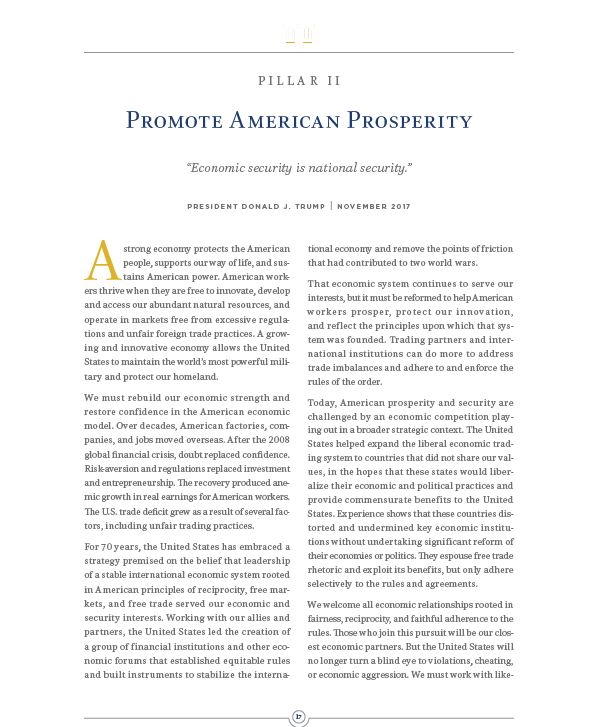

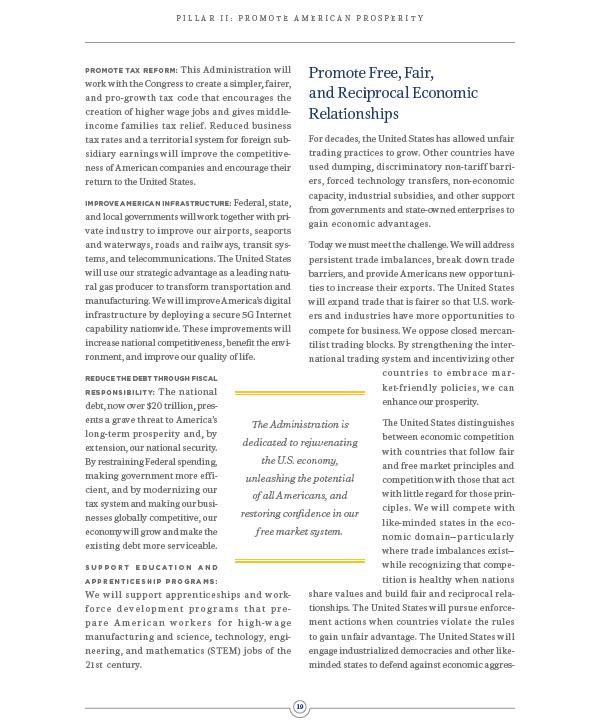
































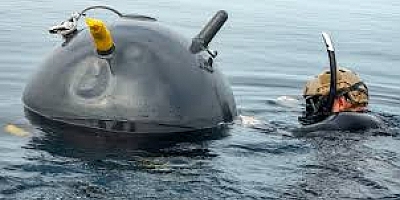



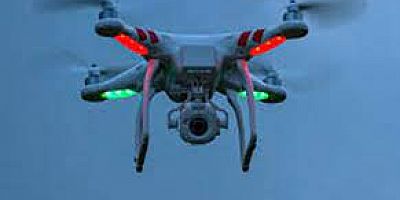



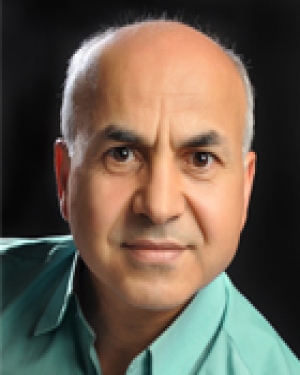


















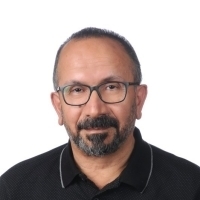

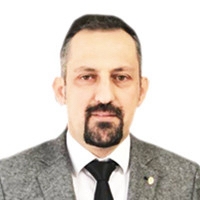
 Ayna.org: Yirmi Yılı Aşkın Sohbet ve Bağlantı Noktası
Ayna.org: Yirmi Yılı Aşkın Sohbet ve Bağlantı Noktası
 50'lik Yeni Rakı: 599,00 TL. 70'lik Yeni Rakı: 775,00 TL. 100'lük Yeni Rakı: 1.0..
50'lik Yeni Rakı: 599,00 TL. 70'lik Yeni Rakı: 775,00 TL. 100'lük Yeni Rakı: 1.0.. Tonguç Vural ‘Yeryüzü Aşkın Yüzü Oluncaya Dek’ albümünü Ütopya Müzik’ten yayınla..
Tonguç Vural ‘Yeryüzü Aşkın Yüzü Oluncaya Dek’ albümünü Ütopya Müzik’ten yayınla.. aynahaber.org internet site reklam tarifesi yayınlandı
aynahaber.org internet site reklam tarifesi yayınlandı 70 yaşındaki S.A. vali yardımcısı hakkında ileri geri konuştuğu için Darülaceze’..
70 yaşındaki S.A. vali yardımcısı hakkında ileri geri konuştuğu için Darülaceze’.. Birçok haber sitesi habermiş gibi görünen içerikler yayınlayarak, şirketlerin re..
Birçok haber sitesi habermiş gibi görünen içerikler yayınlayarak, şirketlerin re..